Neck/Cervical Spine Conditions
If you have neck pain or have trouble with arthritis related to your neck, this can also lead to pain in the ears. If your neck is sore or you experience headaches and/or burning of your neck as well as ear pain, this may all be related.
Can a pulled muscle in the neck cause ear pain?
A person with sternocleidomastoid pain might notice trigger points along the side or front of the neck. Frequently, however, pain from this muscle radiates elsewhere, causing ear, eye, or sinus pain.
Can a pinched nerve in the neck cause ear pain?
A pinched or compressed nerve can trigger numbness, tingling or other sensations at the end of the nerve, which might be in the fingers or in the ear. Except in the more severe cases of abnormality or injury, it's very likely that removal of the pressure will also remove the troublesome symptom.
Can tight neck muscles make ears feel clogged?
The muscles of your head, jaw, face, the front of your neck and your upper trapezius muscles are commonly involved in sinus, jaw or face pain. Sometimes these trigger points and/or stiff neck joints can also lead to ear pain or sensation of loss of hearing.
Can c5 and c6 cause ear pain?
A c5-c6 herniated disc can affect the nerves that control the muscles in the arms, neck, shoulders, hands as well as the head, eyes, ears, or thyroid gland. Symptoms in these areas in addition to pain in the neck is very common with c5-c6 disc herniations.
Can jaw exercises help tinnitus?
Some jaw exercises for tinnitus and massages can also help relax your muscles, improve circulation in the mandibular area and counteract mandibular tinnitus. Perform the massage by gently opening your mouth and moving your jaw to one side. Place your hand underside your jaw and push gently to improve this movement.
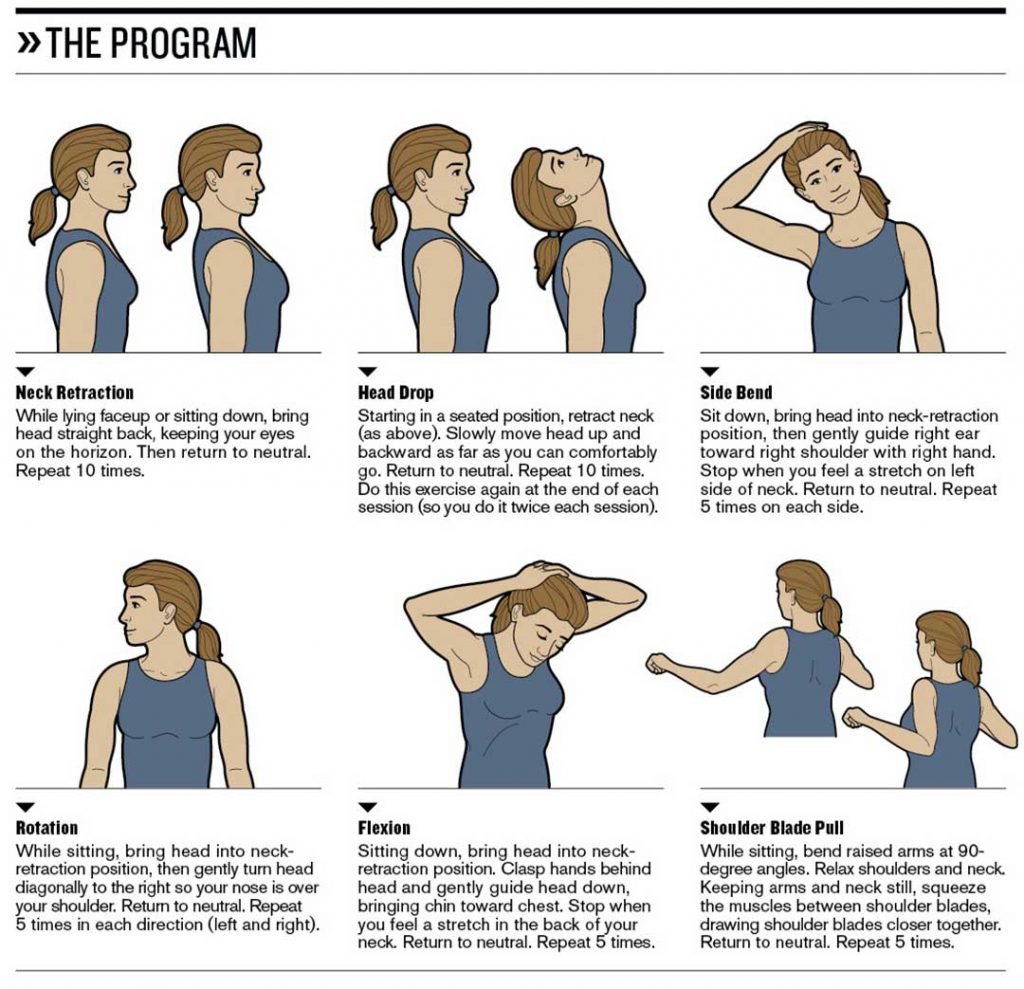
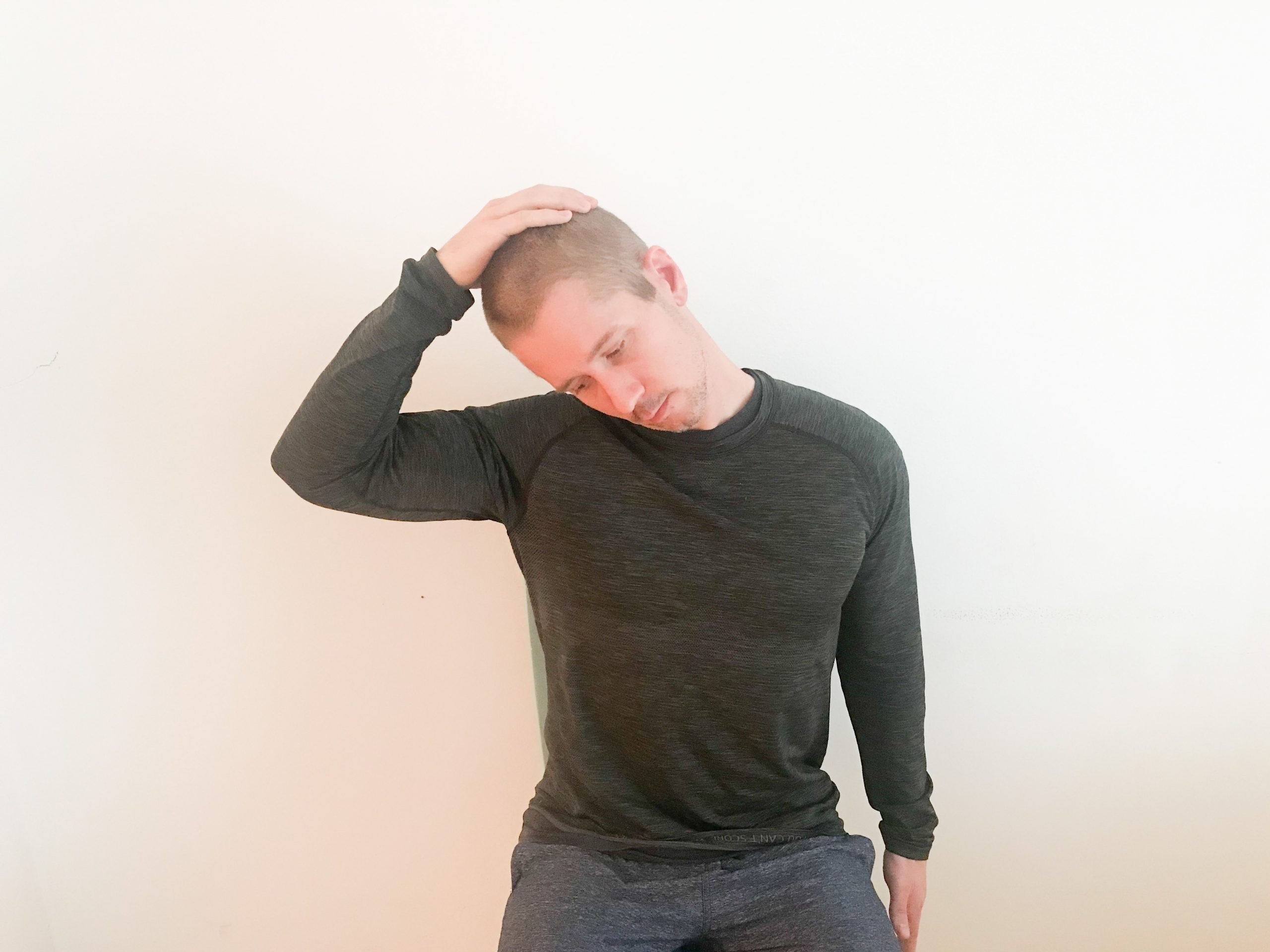
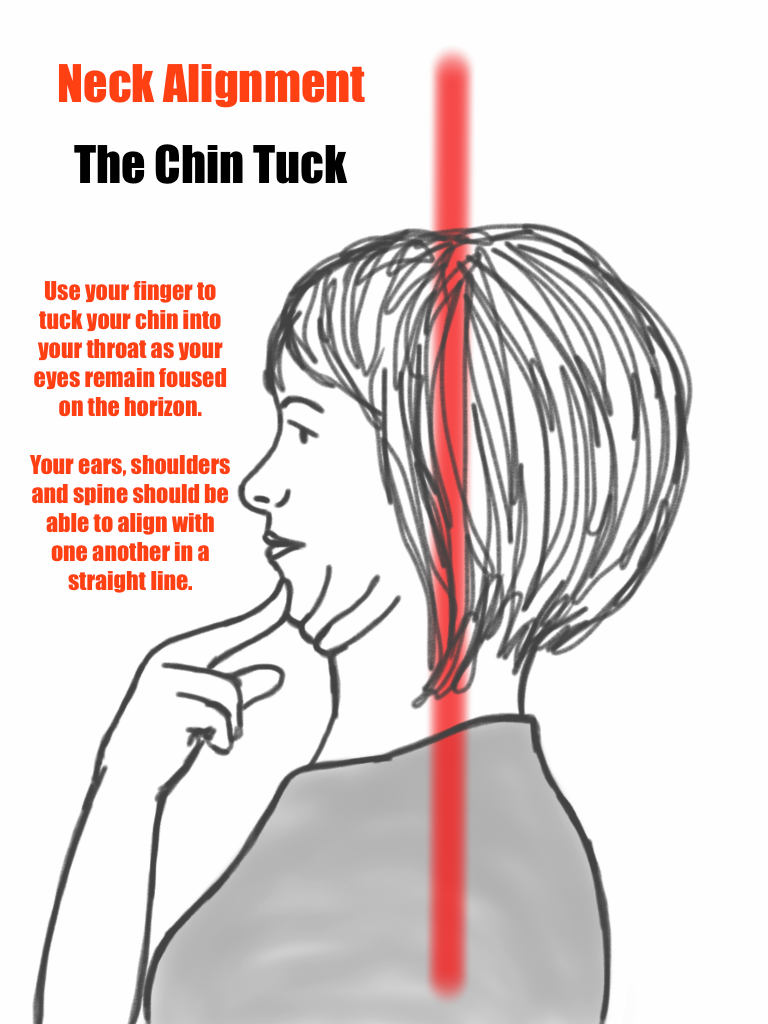
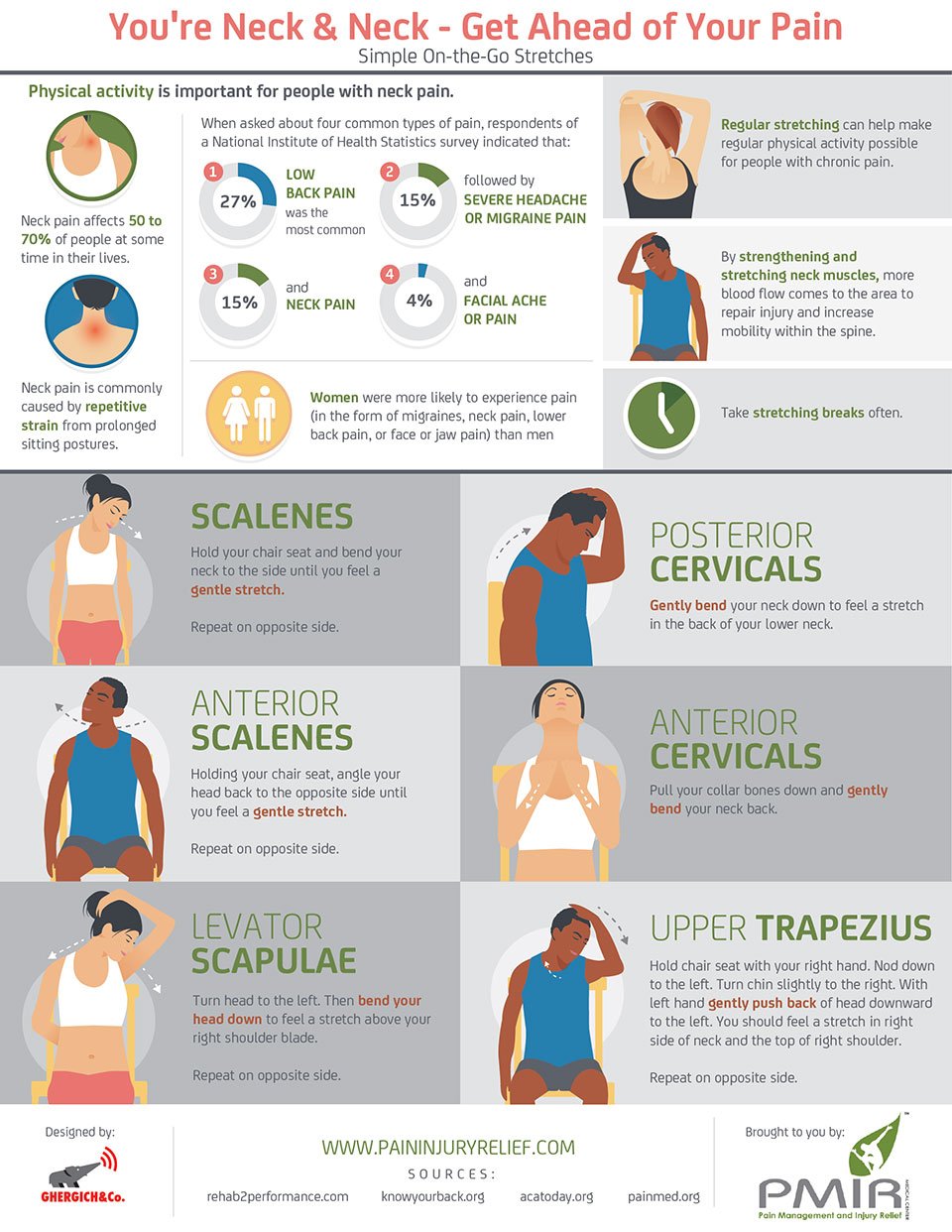
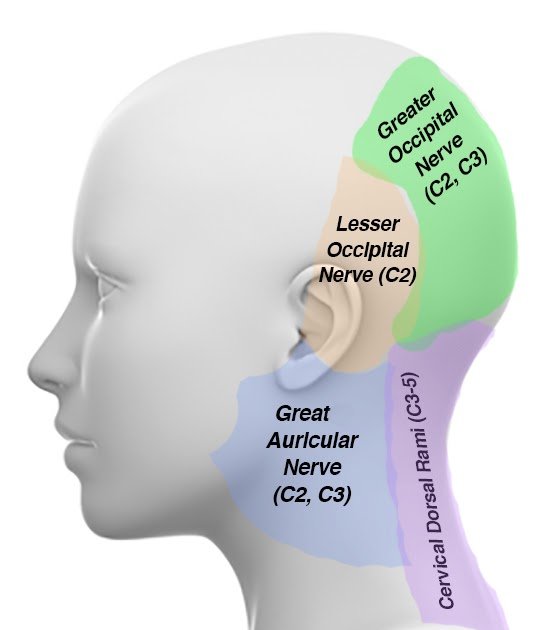
💆🏻♂️ Thread on Manual Release Tips 💆🏻♂️https://t.co/m9qygAsipH
— Juliana Lung (@JulianaLung) June 18, 2021
Why does tinnitus go away when I clench my jaw?
The tensor tympani and tensor veli palatini connect to the trigeminal nerve. Remember, this is the nerve that is most associated with movements that change tinnitus. These muscles often contract when we perform voluntary actions of the jaw.
Frequently Asked Questions
How do I know if my tinnitus is caused by my jaw?
With TMJ-related tinnitus, jaw activity often causes a flare-up. Eating tough or challenging foods, talking a lot, smiling for a long time, or clenching your teeth because of stress commonly stress your jaw. Similarly, many (but not all) people with TMJ-related tinnitus can change the sound by moving their jaw.
Can a pinched nerve in your neck make your ear hurt?
A pinched or compressed nerve can trigger numbness, tingling or other sensations at the end of the nerve, which might be in the fingers or in the ear. Except in the more severe cases of abnormality or injury, it's very likely that removal of the pressure will also remove the troublesome symptom.
Why does my ear hurt when I stretch my neck?
Neck/Cervical Spine Conditions
If you have neck pain or have trouble with arthritis related to your neck, this can also lead to pain in the ears. If your neck is sore or you experience headaches and/or burning of your neck as well as ear pain, this may all be related.
What causes the muscle behind your ear to hurt?
Summary. Many things can cause pain behind the ear, including infections, impacted earwax, dental problems, TMJ disorder, and nerve irritation. A healthcare professional can get to the bottom of your pain after conducting a medical history and examination. The treatment will depend on the source of the pain.
FAQ
- Why does my ear feel weird when I stretch my neck?
- If you're suffering from tinnitus, neck injury, or neck tightness, you may also be experiencing an uncomfortable sense of fullness in your ears. It can occur when the eustachian tube, which links the middle ear to the back of the nose, is swollen or irritated and not functioning properly.
- Why do I feel pressure in my ears when I stretch?
- The eardrum is thin and pliable, like plastic wrap, and is densely innervated. When it becomes stretched inward, patients often experience pain, pressure, and hearing loss.
- Can a tight neck cause ear pressure?
- The muscles of your head, jaw, face, the front of your neck and your upper trapezius muscles are commonly involved in sinus, jaw or face pain. Sometimes these trigger points and/or stiff neck joints can also lead to ear pain or sensation of loss of hearing.
- Why do my ears ring when I stretch my neck?
- The most common way that cervical neck instability causes tinnitus or ringing in the ears is because it disrupts eustachian tube function or if it causes compression of the carotid sheath or carotid artery. Then you get a pulsatile tinnitus, a rhythmic beating that corresponds to the heart beat.
Ear pain when stretching neck
| Can a pulled neck muscle cause ear pressure? | When a neck is injured or abused the ligaments and joints become inflamed and may sometimes tear as well. Irritation on or near the brain stem muddle central nervous system communications and also cause things like TMJ, muscle spams, and ear pain. |
| Why do my ears ring when I stretch? | One of the most common ways neck tension causes a ringing in the ears is due to a disruption in your Eustachian tube function. The Eustachian tube is the opening that connects your middle ear to your nasal sinus cavity. |
| What are 3 symptoms of Meniere's disease? | Symptoms of Meniere's disease include:
|
| What causes ear ringing and head pressure? | Migraines. Migraines are known to develop or worsen tinnitus, causing them to be associated with one another. How migraines impact tinnitus is not a definitively known fact as of right now, but scientific studies continually show that they are correlated. |
- Can you have sinus pressure with ringing in ears?
- If the sinusitis gets worse, it will completely block airways and lead to sinus-induced ringing in the ears. The pressing of the swollen sinus cavity or the increase of pressure caused as you start to blow your nose can exert pressure on the ear drum, which then reacts through ear ringing.
- Why do my ears ring when I stretch or yawn?
- There are little muscles in the ear that contract in order to minimize the internal volume of certain natural actions such as your own voice or yawning or chewing, It's the tightening of these muscles in response to these natural noises that we hear as rumbling.
- Sharp pain in ear when stretching neck
- Ear ache and stiff neck could be spinal meningitis or aseptic meningitis. Less likely could be temperomandibular joint dysfunction, ear infection (middle or
